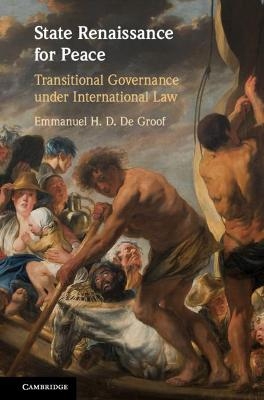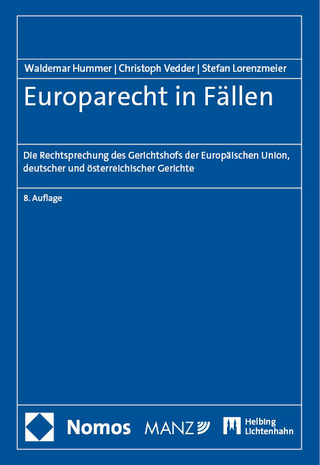
State Renaissance for Peace
Cambridge University Press (Verlag)
9781108499767 (ISBN)
After 1989, the function of transitional governance changed. It became a process whereby transitional authorities introduce a constitutional transformation on the basis of interim laws. In spite of its domestic nature, it also became an international project and one with formidable ambitions: ending war, conflict or crisis by reconfiguring the state order. This model attracted international attention, from the UN Security Council and several regional organisations, and became a playing field of choice in international politics and diplomacy. Also without recourse to armed force, international actors could impact a state apparatus – through state renaissance. This book zooms in on the non-forcible aspects of conflict-related transitional governance while focusing on the transition itself. This study shows that neither transitional actors nor external actors must respect specific rules when realising or contributing to state renaissance. The legal limits to indirectly provoking regime change are also being unveiled.
Emmanuel De Groof works in diplomacy for the Belgian Ministry of Foreign Affairs. He is an Associate to the Political Settlements Research Programme (University of Edinburgh); a Visiting Lecturer at the University of Maastricht; a Visiting Professor at the University of Kigali; and a scholar in the fields of international law, diplomacy, mediation, and development cooperation. Formerly a Fulbright-Schuman scholar at NYU School of Law, Emmanuel has won various awards including at the Charles Rousseau and Manfred Lachs competitions. He has worked at the European Centre for Development Policy Management ('Pelican House'), the European University Institute, the Brussels Bar, and as a Law Clerk for Albie Sachs at the South African Constitutional Court.
Introduction. Transitional governance today; Part I. The Unchartered Territory of Transitional Governance: 1. The rise and internationalisation of transitional governance; 2. Limitations of existing literature; Conclusion of Part I; Part II. Foundation and Actors of Transitional Governance: Sources of Ius In Interregno: 3. The foundation of transitional governance; 4. The actors of the interregnum; 5. The sources of ius in interregno; Conclusion of Part II; Part III. Self-Determination through Transitional Governance: 6. Limits ratione temporis and materiae to transitional governance; 7. The practice and discourse of inclusion; Conclusion of Part III; Part IV. Moderating External Influence on Transitional Governance: 8. Limits to involvement with consensual transitional governance; 9. The inducement of oppositional transitional governance; 10. Indirect regime change: a response to ius cogens violations?; Conclusion of Part IV; General conclusion; Index.
| Erscheinungsdatum | 17.08.2020 |
|---|---|
| Zusatzinfo | Worked examples or Exercises; 13 Tables, black and white; 1 Line drawings, black and white |
| Verlagsort | Cambridge |
| Sprache | englisch |
| Maße | 160 x 236 mm |
| Gewicht | 760 g |
| Themenwelt | Recht / Steuern ► EU / Internationales Recht |
| Recht / Steuern ► Öffentliches Recht ► Völkerrecht | |
| Sozialwissenschaften ► Politik / Verwaltung | |
| ISBN-13 | 9781108499767 / 9781108499767 |
| Zustand | Neuware |
| Informationen gemäß Produktsicherheitsverordnung (GPSR) | |
| Haben Sie eine Frage zum Produkt? |
aus dem Bereich


